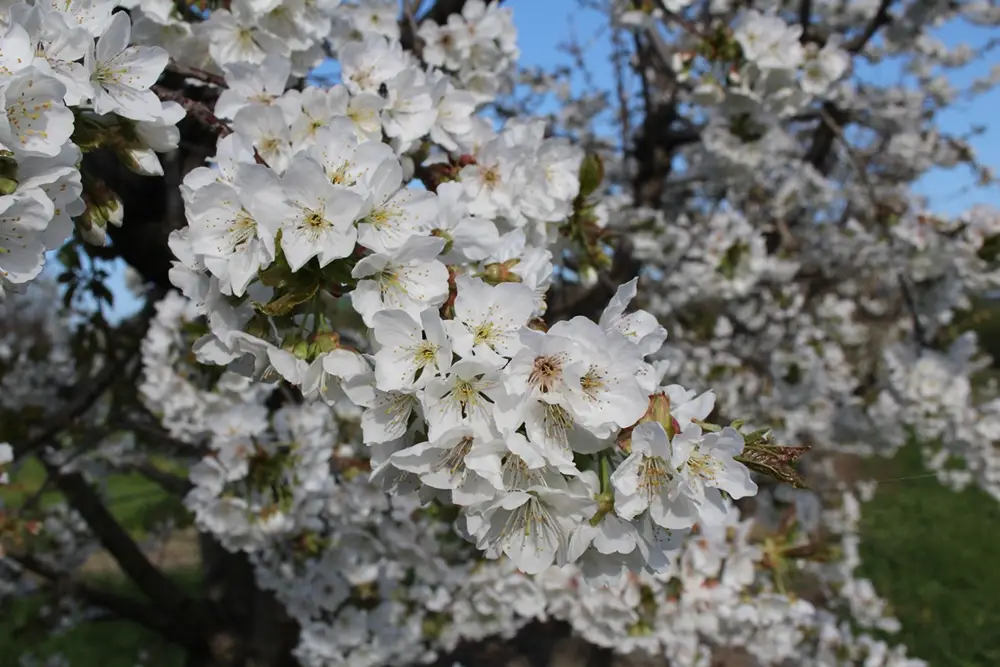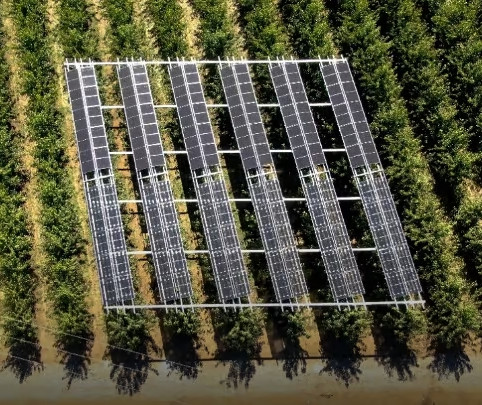Climate change has altered the natural pollination cycles, affecting key crops. To tackle this challenge, in August 2021, the project "Design, development, and commercial validation of artificial pollination technology for orchards using unmanned aerial vehicles (UAVs)" was launched, supported by the FIA (Foundation for Agricultural Innovation) and developed by the Montefrutal Innovation Center (CIM) of Abud & Cía.
In this way, pollination drones emerge as an innovative solution to complement the work of bees and improve production in orchards of self-fertile varieties.
These plantations require pollen from another compatible variety to produce fruit, making the intervention of pollinators and agents such as bees essential to transfer pollen between flowers. However, if the flowering of these varieties does not coincide with that of their pollinators, fruit production is compromised.
The main challenge of the project was to develop a pollination technique that complements traditional methods and is adapted to the conditions of Chilean fruit farming.
To achieve this goal, the team conducted an extensive process of design and optimization of the pollination kit via drone, along with multiple field tests and technical adjustments to ensure proper pollen dilution and application, as well as an appropriate weight for the device.

Therefore, drone-assisted pollination is proving to be a promising alternative to enhance production efficiency in cherry orchards and to address the challenges of climate change in national fruit farming.
Innovation and technology
The regional representative of FIA in Maule, Robert Giovanetti, stated that "this project is a clear example of how innovation and technology can provide concrete solutions to the challenges faced by fruit farming.
Drone-assisted pollination can be complementary to bee pollination, especially during critical moments of the production cycle. At FIA, we continue to support initiatives that enhance efficiency and sustainability in the agricultural sector, promoting the development of tools that enable producers to adapt to an ever-evolving environment.
For his part, Luis Ahumada, director of the Montefrutal Innovation Center (CIM), explained that “since 2017, thanks to funding and support from the FIA agency, we have worked on various projects and studies that have allowed us to develop better tools for fruit farming. This support, combined with the professional work of our team, has been fundamental in positioning us as a reference point in research and development of technologies applicable to the fruit industry, significantly contributing to the progress and sustainability of the sector.”
Source: Mundo Agropecuario
Photo source: Mundo Agropecuario; SL Fruit Service
Cherry Times - All rights reserved











